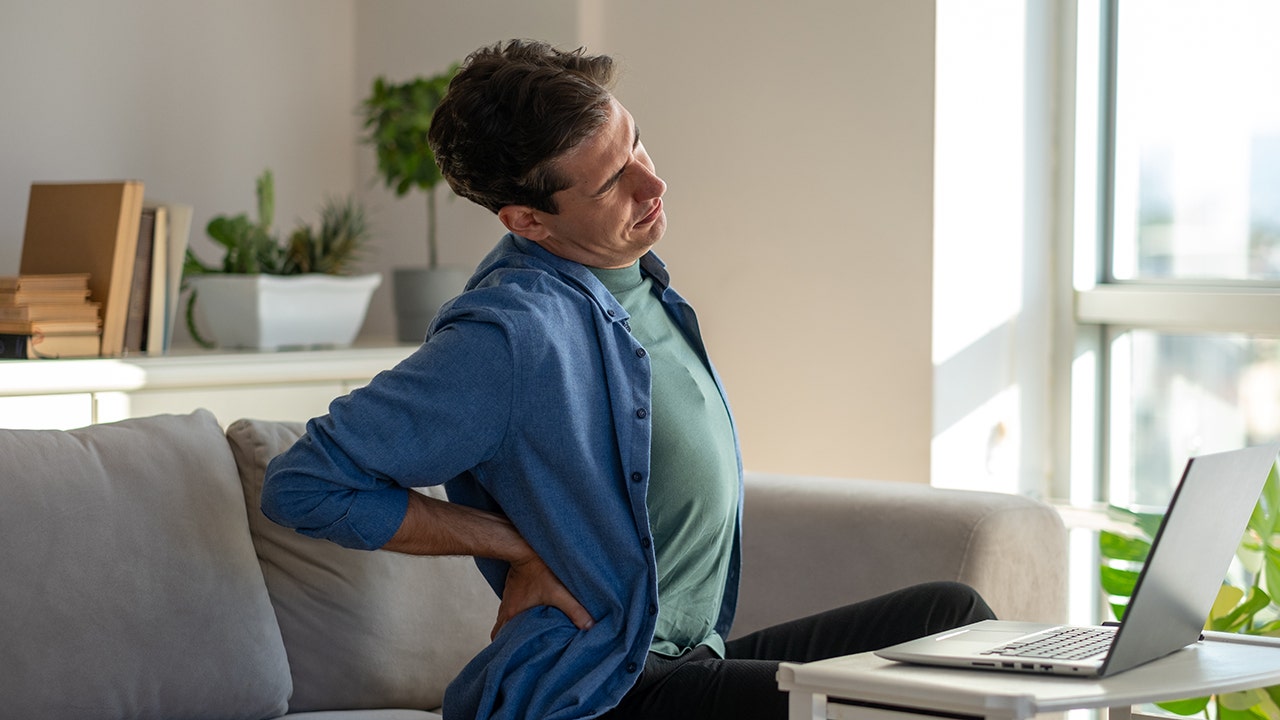Back pain often caused by poor posture, neurosurgeon says — here’s how to fix it

In today’s world, where sitting at desks and slumping in front of screens has become the norm, back pain is a common ailment among Americans. Dr. Arthur L. Jenkins III, a board-certified neurosurgeon in New York and CEO of Jenkins NeuroSpine, attributes poor posture and slouching to the serious effects on the back.
According to Dr. Jenkins, poor posture stretches the spine in a way that it is not designed to handle. He emphasizes that standing is much better for our spines than sitting, and that many people experience back pain after sitting for extended periods of time. This can be exacerbated by the modern phenomenon known as “tech neck,” which occurs when individuals constantly look down at devices like phones and laptops.
The forward posture associated with tech neck can lead to a condition called kyphosis, putting strain on the front of the spine and increasing pressure on the disks. Additionally, this posture can cause lower back muscles to stretch and pull, leading to discomfort and potential long-term issues.
To combat back pain caused by poor posture and sitting for long periods of time, Dr. Jenkins offers several tips. He recommends standing up frequently, stretching the body, and using a standing desk or exercise ball instead of a traditional chair. Additionally, he suggests adjusting the computer monitor to promote better neck and chin angles, as well as engaging the core muscles to maintain proper spinal alignment.
Incorporating exercises that focus on strengthening the core and improving flexibility, such as yoga or Pilates, can also help prevent back pain. Dr. Jenkins advises against bending, lifting, and twisting simultaneously, as this can contribute to back issues. Instead, he suggests breaking up these movements and engaging the core when lifting objects.
For individuals experiencing persistent back pain, Dr. Jenkins stresses the importance of seeking professional help. Whether through physical therapy, chiropractic care, or kinesiology-based methods like the Canali Postural Method (CPM), finding the right support for back health is essential. It is crucial to address any emergent signs of severe pain or impaired function promptly by consulting a healthcare provider.
In conclusion, taking proactive steps to maintain good posture, engage the core muscles, and incorporate regular exercise can help prevent back pain and promote overall spinal health. By being mindful of daily habits and seeking professional guidance when needed, individuals can reduce the risk of developing chronic back issues and improve their quality of life.




